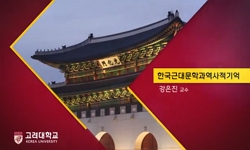이 논문은 정지용과 조지훈의 시를 대상으로 해방기 시어의 일면을 살핀 시도이다. 1935년 개척된 시어의 영역은 반봉건?반외세?민족국가 설립이라는 시대정신의 자장 안에서 축소되었다. 고...
http://chineseinput.net/에서 pinyin(병음)방식으로 중국어를 변환할 수 있습니다.
변환된 중국어를 복사하여 사용하시면 됩니다.
- 中文 을 입력하시려면 zhongwen을 입력하시고 space를누르시면됩니다.
- 北京 을 입력하시려면 beijing을 입력하시고 space를 누르시면 됩니다.

해방기 시어의 일면 = The Trends of the Poetic Words in the Time of Korean Liberation - Focusing on Poems by Jeong Ji Yong and Cho Ji Hoon -
한글로보기https://www.riss.kr/link?id=A100478368
- 저자
- 발행기관
- 학술지명
- 권호사항
-
발행연도
2015
-
작성언어
Korean
-
주제어
해방기 ; 시어 ; 정지용 ; 조지훈 ; 고유어 ; 표준어 ; 한자어 ; Time of the Korean Liberation ; poetic word ; Jeong Ji Yong ; Cho Ji Hoon ; original Korean words ; Standard Language ; word in Chinese letters
-
등재정보
KCI등재
-
자료형태
학술저널
- 발행기관 URL
-
수록면
45-67(23쪽)
- DOI식별코드
- 제공처
-
0
상세조회 -
0
다운로드
부가정보
국문 초록 (Abstract)
이 논문은 정지용과 조지훈의 시를 대상으로 해방기 시어의 일면을 살핀 시도이다. 1935년 개척된 시어의 영역은 반봉건?반외세?민족국가 설립이라는 시대정신의 자장 안에서 축소되었다. 고어나 한자어는 새로움에 위배되는 것으로, 방언은 규정에 어긋나는 것으로 ‘표준어’와 대치되고 있었다. 정지용이 개척했던 여러 개성적인 시어, 고어와 한자어에 관심이 컸던 조지훈의 시어, 두 시인의 시어가 시대정신의 압력에 어떠한 반응을 했는지 파악하는 것이 이 글의 목적이다. 한자어와 고유어의 대결에서 한자어가 밀려나는 모습이 해방 이후 정지용의 시에는 담겨 있다. 보편성을 기반으로 한 고어나 방언이나 조어가 주류 시에 포함될 기회가 지연되었던 것이다. 조지훈은 해방 전 창작한 시에서 유서 깊은 대상의 고유명사를 한자어에 담았다. 그의 한자어는 고어와 밀착했다. 해방 이후 조지훈 시에는 특정 대상을 지칭하는데 쓰이는 한자어가 아니라 일상생활에서 쓰이는 한자어가 등장했다. 조지훈의 시는 스승인 정지용과 걸었던 길과 교차하며 갈라졌다. 정지용은 시대 현실과 유리된 동시에서 고유어를 적극적으로 활용하며 시적 이력을 마감했고 조지훈은 시대현실이 투영된 관념적 추상어들을 보여주며 남한 시단의 일반적인 흐름에 동참하였다.
다국어 초록 (Multilingual Abstract)
This article is an attempt to review the trends of the poetic words in the time of Koream Liberation focusing on poems by Jeong Ji Yong and Cho Ji Hoon. In 1935, the scope of pioneered poetic words was reduced into the field of to build an anti-feudal...
This article is an attempt to review the trends of the poetic words in the time of Koream Liberation focusing on poems by Jeong Ji Yong and Cho Ji Hoon. In 1935, the scope of pioneered poetic words was reduced into the field of to build an anti-feudal, against-foreign, and national country. Old or words in Chinese letters were considered as new ones while dialects were regarded as violation of the regulation to the standard language. This article aims at figuring out how poetic words by Jeong Ji Yong who pioneered diverse original words for poetry and by Cho Ji Hoon, who had great interest in old words and one in Chinese letters, have reacted by suppress of the ethos of the time. Jeong Ji Yong’s poems after the liberation contains defeat of words in Chinese letters in the competition between original Korean words and it. After Jeong Ji Yong, the possibilities of universal old words, dialects, and coined words were gone. Cho Ji Hoon included the proper nouns of the old objects consisting of Chinese-derived words in his poems before the Liberation. His use of words in Chinese letters were closely tied to old words. Since the Liberation, Cho Ji Hoon"s poems showed daily-used words in Chinese letters not one designating a specific object. Cho Ji Hoon"s poems separated from those of Jeong Ji Yong, intersecting with them. Jeong Ji Yong used original Korean words actively in the situation isolated from the reality at that time and finished his career as a poet while Cho Ji Hoon showed idealistic abstract words reflecting the reality of the time, participating in general flow of poetry in South Korea.
목차 (Table of Contents)
- 국문초록
- Ⅰ. 10년 전, 1935년 전후
- Ⅱ. 1945년 이후 어문운동의 영향과 시어의 상황
- Ⅲ. 정형의 제시와 고유어 사용-정지용의 경우
- Ⅳ. 한자어 제시와 고어의 소재 -조지훈의 경우
- 국문초록
- Ⅰ. 10년 전, 1935년 전후
- Ⅱ. 1945년 이후 어문운동의 영향과 시어의 상황
- Ⅲ. 정형의 제시와 고유어 사용-정지용의 경우
- Ⅳ. 한자어 제시와 고어의 소재 -조지훈의 경우
- Ⅴ. 나가며
- 참고문헌
- Abstract
동일학술지(권/호) 다른 논문
-
- 한국시학회
- 김예리(Kim, Ye-Rhee)
- 2015
- KCI등재
-
- 한국시학회
- 김지녀(Kim, Ji-Nyeo)
- 2015
- KCI등재
-
- 한국시학회
- 맹문재(Maeng, Mun-Jae)
- 2015
- KCI등재
-
김광균 시에 나타나는 제작 의식과 창작 방법으로서의 공감각적 이미지
- 한국시학회
- 문혜원(Mun, Hye-Won)
- 2015
- KCI등재




 KCI
KCI DBpia
DBpia






